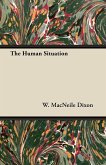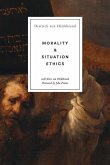Plato's Symposium is one of his most celebrated dialogues--a dialogue so eventful, with such memorable characters, that it has received significant scholarly attention. Perhaps precisely on account of the Symposium's many memorable characters, however. Apollodorus and Aristodemus, two characters who contribute the Symposium's narrative frame, have mostly been forgotten. I call for new attention to these two characters, arguing that together with the more famous Alcibiades, they jointly dramatize a shared problem to which Socrates is actually attempting to offer a kind of solution--a therapy--when he gives his speech in praise of Love. Specifically, these three characters experience misplaced shame that is obstructing their sincere and fruitful participation in the philosophic life. Socrates teaches that Eros himself is in-between poverty (penia) and resource (poros), and that this is true of the philosopher, as well. Thus, a philosopher must leam to coexist with both poverty and resource. It is their failure to cope with both that has inspired obstructive shame in these characters. Unfortunately, a sad twist to Socrates attempted therapy is that although Apollodorus and Aristodemus are apparently








